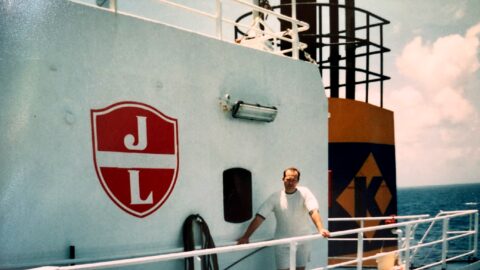The ransom paid to secure the release of aframax Zirku from Somali pirates last week fell well short of the widely-quoted figure of $12m, according to a source directly aware of the situation.
While still reaching double-figure million US dollars, the sum involved was less than the reported $13.5m involved in the case of the very large crude carrier Irene SL , which is itself most likely an exaggeration, he added.
The confusion appeared to have been caused by uncritical acceptance of a pirate claim, even though the pirates have an obvious self-interest in talking up the figures at which captured vessels change hands.
The 2003-built, 105,846 dwt Zirku , which the Lloyd’s List Intelligence database associated with Cairo-based Arab Maritime Petroleum , was freed on Friday. Its 29 seafarers, who include 17 Pakistanis, are said to be well.
The vessel was hijacked in late March around 250 nm southeast of Salalah, and was en route to Singapore from Bashayer in Sudan at the time.
But high-level shipping sources told Lloyd’s List that the headlines were misleading, and that while the latest ransom was high, it was still below earlier ransoms.
Because of the confidentiality surrounding such matters, accuracy is impossible. But Zirku probably comes somewhere between the $11.5m paid for Irene SL and the $9.5m paid for South Korean VLCC Samho Dream in November last year. These three lead the pack, ahead of such vessels as St James Park and Asian Glory .
“If you look at a six-month rolling average, the trend is upwards. People can remember two or three years ago, when payments were $1m-$1.5m,” the source said. “If you look at the market rate — though I hate the phrase — it’s probably $4m-$4.5m.
“There are reports of ships that pay less, but with tankers, you are paying well above that. There is no doubt at all that pirates regard tankers as something special.”
Some ships are now of such low value that nobody is likely to pay a ransom that exceeds the value of ship and cargo. At the other end of the scale, more valuable ships such as Zirku and Irene SL will tend to be released more quickly, at ransoms that are larger than most.
The source said: “The net effect is to reduce the time you are hijacked, which is good news for shipowners, because time is money. You get your crew out before they start being tortured. The problem is, property underwriters pay more than they would like to.”


